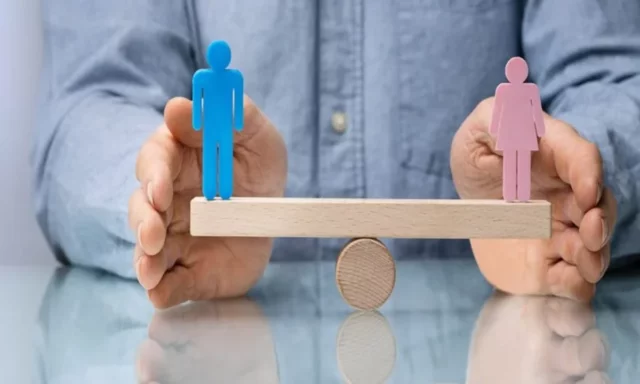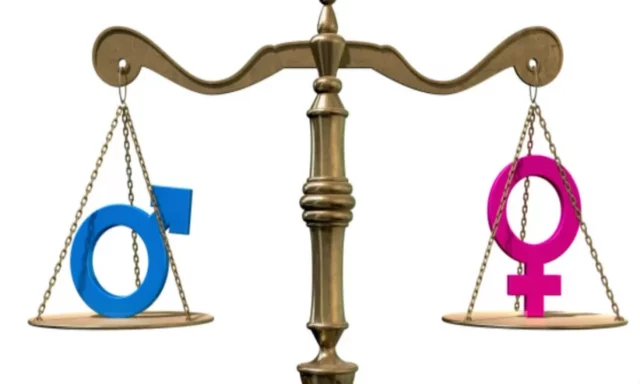Costa Rica promised that by 2030 there will be no form of discrimination against women and girls. Not only because it is a human right, but because it is decisive for economic and social development. This is because in 2015 the country was one of the 193 signatory nations of the Sustainable Development Goals (SDG). These are 17 objectives that have the purpose that by 2030 all humanity has at least the minimum conditions to lead a quality life. One of the topics included is gender.
In accordance with the commitments made, by 2022 Costa Rica must have achieved “gender equality and empower all women and girls”, as is clear from this SDG. Empowering women and girls has been shown time and time again to have a multiplier effect and help promote economic growth and development globally.
Some of the goals that must be achieved to meet this SDG are:
• Eradicate all types of discrimination against women and girls.
• Eliminate all forms of violence against women and girls in the public and private spheres.
• Recognize unpaid work and domestic work and promote shared responsibility in the home and family.
The UN points out that to achieve gender equality by 2030, adopting countries must eliminate the root causes of discrimination through actions such as amending laws to eliminate violence, as well as toughening measures against harmful practices such as child marriage. In addition to achieving an equal distribution of economic resources that goes hand in hand with the responsibility of equal care exercised by men and women.
How is our country in this regard?
The data as well as the voices of women in leadership positions point out the challenges of Costa Rican society to achieve gender equality. They are related to social conditions, lack of access, support, and opportunities, which make it difficult to get out of abusive relationships, find a decent job, or access popularly elected or senior management positions.
Women have the weight of unemployment on their shoulders and, not for nothing, it is said that poverty has a woman’s face. In August 2022, there was 15.4% unemployment in women, as opposed to 9.1% for men, according to the Continuous Employment Survey for the second quarter of this year. In concrete numbers, this means that there are 151,000 unemployed women compared to 133,000 men.
Due to this and other objectives, the United Nations System (UN) urged the country to accelerate compliance with them. The UN highlights progress in areas such as the political participation of women and on issues such as street harassment, improper relationships, obstetric violence and political violence. But, they are only advances that do not imply their eradication.
On the other hand, the organization points out, Costa Rica must advance in favorable conditions for access to more and better jobs for women. Here there are 2 opposing events since, on the one hand, they are more academically prepared; also, the majority of young people who neither study nor work are women. Likewise, it is urgent to address poverty and equate domestic work for a better enjoyment of their lives. In addition, it is necessary to eradicate violence, mainly that where women’s lives are taken by their partners or ex-partners, that is, femicides

Until the previous August 12th, 7 femicides were recorded, although there are another 19 violent deaths of women that are still pending qualification, for which the number could increase. Meanwhile, in 2021, 19 femicides were registered and there are another 17 deaths of women that have not yet been qualified.
Specialists point out that employment is a weapon that can attack this problem since it grants economic independence to many women, it would serve as a vehicle to get out of violent relationships.
A triple barrier
Natalia Morales, a researcher for the State of the Nation, emphasizes that women face a triple barrier to enter the labor market. The first of them is that of insertion, since many stop this decision by taking care of minors, sick people and older adults, as well as housework among their daily tasks. This, according to the researcher, limits them to opt for the search for a job. The second is selection, that is, a quality job, and the third is assessment, related to equal pay compared to men for the same job.
Morales highlighted that in the last 20 years the gap is around 10% in favor of men in similar positions, according to what he said through a podcast of the State of the Nation. According to her criteria, Costa Rica should bet on a universal care network that allows women to access this service to perform in actions such as work and study. “The importance of a universal care system in the country, not only by human right, women represent half of the population, but from a solely economic approach, more women working will generate economic growth, more development, well-being and would reduce poverty”, he said.
Certainly, a greater participation of women in quality jobs also translates into well-being for the families they are responsible for. For the first time in history, in the same four-year period there were 2 presidents of Congress. They are Carolina Hidalgo (left) and Silvia Hernández (right). (Courtesy Legislative Assembly).
This issue must be made visible to achieve it
The Congress for the period 2018-2022 had a historic moment with the election of two women for the Presidency of the First Power of the Republic. Carolina Hidalgo, former deputy of the Citizen Action Party (PAC) was in the period 2018-2019 and Silvia Hernández, former congressman of National Liberation (PLN) in 2021-2022.
Hidalgo, spoke with The Observer. In her opinion, achieving these goals will be viable as long as the issues necessary to achieve gender equality are made visible, but with the support of the Executive Branch. “If the Executive Branch does not prioritize it, it is difficult for other actors who have to do with this work to do so. There are tasks such as resolving inequality in economic matters, the salary gaps that exist, everything related to gender violence”, she declared. “Currently, the Government has worked more on issues such as job creation, but in that line an entire gender transversal should be included where that is fundamental and I have not seen that”, Hidalgo expanded. In Hidalgo’s opinion, Costa Rica should have as a priority the eradication of all

In aspects related to politics, she considered that what happened in the past four years with her and Hernández should be a custom and not an exception. “It should be a condition already installed, but I consider that the expectation that is used to give women space to be able to preside over the Legislative Assembly or faction headquarters to exercise those leaderships is something fundamental”, she said. The former legislator called on the current Legislative Assembly to approve a bill of her authorship called “Menstruation and Justice” as well as aspects related to employment.
The congresswoman emphasized that the legislative forum began its work with the analysis of conflicts that affect women such as violence, domestic violence and those related to economic issues. “I have been pointing it out in the different commissions in order to generate escape valves that allow us to help those women who are being affected today in times of crisis”, she explained.
Liberationist Carolina Delgado, who chairs the Women’s Commission in the Legislative Assembly, pointed to important challenges, such as the implementation of the new laws that have been approved, including political violence and other types of violence. “There are elements that I have been defending for a long time and that have to do with the political participation of women, despite the fact that since 2009 the reform in the Electoral Code has been approved, it has been impossible to have it especially in the municipal issue, there I have pointed out to the Supreme Electoral Tribunal that it has stopped on the carpet and does not allow us to participate equally, these are elements that we have on the table today”, he affirmed.
“Just as slavery and colonialism were a stain on previous centuries, women’s inequality should shame us all in the 21st century. Because it is not only unacceptable; It’s stupid”, said Antonio Gutérres, Secretary General of the UN in 2020. In the same vein as the State of the Nation investigator, the congresswoman pointed to the care network as a necessary service that will allow women to develop outside their homes. “We have to start raising awareness about other issues that have to do with salary differences, the care network that is beginning to take shape and that is also in a process that with all the cuts in spending, one of the elements that most The care network has been cut and without this tool we cannot go out to study or work and that could delay any improvement in the rates for women”, she said.
Undoubtedly, there are challenges in the next 8 years in which the entire country must unite to achieve the goal of eradicating the inequality that currently harms women in all areas. All areas, with equal importance must be addressed. It will be in 2030 when the UN will confirm to us if we have done our homework as a society or if we require more efforts to achieve true gender equality. Currently, the Congress is made up of 27 deputies. In the image, there are 25 due to the absence of the official Pilar Cisneros and Gloria Navas, from the New Republic party. (Courtesy Legislative Assembly).
The municipal case
Although the UN highlights progress in the composition of the Legislative Assembly, the participation of women in the municipal system is scant. Only 9.8% of mayoral posts are held by women.
Karen Porras, representative of the Costa Rican Network of Municipal Women, previously confirmed that there are great challenges ahead. “We have enough lags and injustices in the joint experience, seen from the respect, validation and application of the conditions that lead to equity and equal opportunities for both men and women. And that today the disagreements and disparities that we see in numbers and positions, are due, in some cases, to the effects of political violence suffered by women politicians and that the distances of the interest of many women to participate in politics”, he recognized.
In her opinion, more determined women and more sensitive political parties are required to give women the space to put forward their names. She also pointed out the need for cultural changes to have open communities willing to recognize the right and give opportunities to their leaders.
Care and politics: The voice of Laura Chinchilla
Laura Chinchilla is a name that was marked in Costa Rican history, by becoming the first woman to achieve the presidential magistracy. It has been 12 years since she was given the presidential sash and in her opinion, this achievement served to empower many young women and encourage them to participate in politics.
In an interview previously granted to this medium, Chinchilla pointed out that one of the great obstacles for the incursion of women into politics is the care of people in her care, as Morales pointed out from the labor perspective. “The most important thing that happened, because the laws and regulations remain the same, that is, by then we already had parity, it seems to me that the most important thing that happened after my presidency is that the vision and image of women in politics, we saw a group of young women, witnesses of that event, they empowered themselves and decided to take a step forward”, Chinchilla declared. “Today we have an almost equal Congress with many women of relatively young ages, very strong and prepared, and I have not the slightest doubt that they are going forward”, she said in 2021.
As an anecdote, Ella Chinchilla recalled that in 2010, in addition to winning the national elections, she won the children’s vote. For this reason, before entering the exercise of her functions, she attended educational centers to thank the gesture. “The teachers and professors told me that after my elections, many girls returned to school saying that they too were going to be Presidents of Costa Rica”, she said.
After her experience in this position as a woman, the former head of state considers that she should continue working in co-responsibility of care. This is because, while they are very busy caring for children, the elderly and sick people, in addition to the fact that unpaid work continues mostly in the hands of women, her space in her politics is reduced.
And precisely, the UN documents that in Costa Rica, women dedicate more than twice as many hours as men to unpaid domestic work. “Then, women are restricted in their participation, whether it be work, student, or politics”, Chinchilla pointed out. “So, we have to continue advancing with those policies that there was indeed a brake with the care network that was made not only to favor children but also women and we must continue in that direction, in co-responsibility, programs co-responsibility for home care, so that women free up time and can join politics”, advised the former president.
Other challenges for the incorporation of more women in political positions have to do with financing and breaking down stereotypes. This goes through greater inclusion in the private and corporate sector, according to Chinchilla. “That inhibits many women from being able to access financing”.
In the country, only 4 out of 10 management positions are held by women. In the recent presidential elections of 2022, there were historically 4 female candidates for the presidency of the Republic. They are Lineth Saborío with the Christian Social Unity, Natalia Díaz in Unidos Podemos, Viviam Quesada in Democratic Force and Maricela Morales with the Costa Rican Democratic Union (UCD). Meanwhile, the Legislative Assembly achieved that 27 of its seats are occupied by women, that is, 1 more compared to the previous period.

